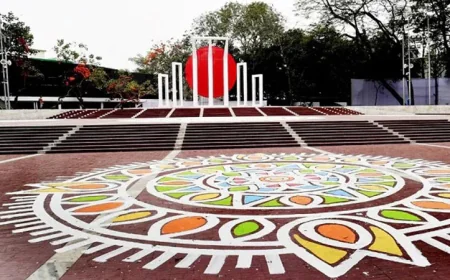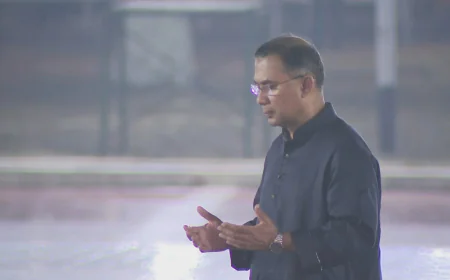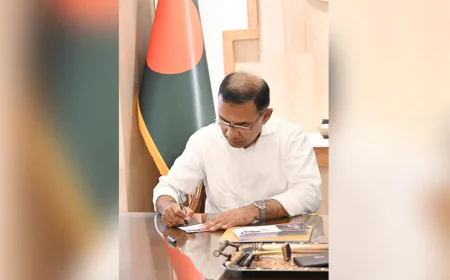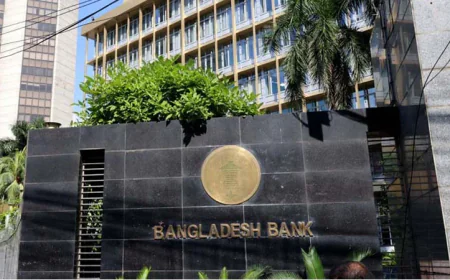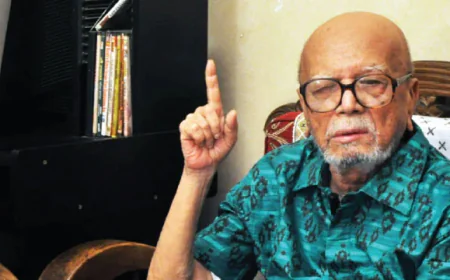Editorial Tribute / Eleven Years of The Daily Tribunal
The Enduring Legacy of Journalism Rooted in Truth and Integrity

In an age when the speed of news threatens its substance, and the voices of vested interests often overpower those of reason, a few institutions still hold firm in the storm—quietly, consistently, courageously. The Daily Tribunal is one such institution. As it marks its 11th anniversary on May 28, 2025, we reflect not merely on the passage of time, but on the legacy of a newspaper that has earned its place as a guardian of truth, a chronicler of public life, and a conscience of the nation.
Established on May 28, 2014, The Daily Tribunal did not begin with grand declarations or an inflated sense of self-importance. It entered Bangladesh’s media landscape with a calm yet firm commitment to meaningful journalism—journalism that informs, investigates, challenges, uplifts, and ultimately serves the people. That commitment has not wavered. Eleven years later, its pages continue to reflect a rare blend of editorial discipline, social responsibility, and ethical fortitude that is increasingly hard to find in today’s media ecosystem.
The founding editor and publisher, Shiharan Rashid—a respected journalist known for his depth of thought and fearless principles—envisioned the paper as an alternative to the sensationalism and political polarization that had crept into much of the mainstream press. Under his watchful eye and editorial leadership, The Daily Tribunal grew not only in readership but in relevance. Rashid brought not just years of journalistic experience to the table, but a moral compass—anchoring his newsroom in truth even when the cost was high, and praise was rare.
What distinguishes The Daily Tribunal is not just the accuracy of its facts or the timeliness of its reports—it is the conviction with which it approaches its mission. In an era where headlines are crafted for algorithms, the Tribunal continues to write for citizens. Its reporting style is reflective, thoughtful, and grounded in research. In every edition, one finds a clear commitment to understanding the complexity behind issues rather than simplifying them for convenience or clicks.
Over the last decade and more, the newspaper has consistently tackled some of the most challenging topics in Bangladesh: governance failures, judicial bottlenecks, climate vulnerability, healthcare inequity, educational reform, digital rights, rural poverty, gender justice, and more. These are not easy topics to report on. They demand persistence, patience, and protection—qualities that the Tribunal’s reporters, editors, and researchers have displayed time and again, often at great personal risk.
The role of The Daily Tribunal in investigative journalism deserves special mention. Long before "fact-checking" became a global buzzword, this newspaper had already established internal protocols to ensure that what reached the public was not speculation, but substantiated truth. From uncovering financial irregularities in state projects to highlighting corruption in non-government sectors, its investigative pieces have not just exposed wrongdoing—they have stirred public debate, prompted administrative action, and, in some cases, changed lives.
Yet, unlike many who focus solely on criticism, The Daily Tribunal also commits itself to constructive storytelling. The paper has covered stories of resilience—from women entrepreneurs in remote districts to community-led education initiatives, from climate heroes in vulnerable coastal areas to digital innovators in urban slums. It has highlighted not only what is broken but also what is being rebuilt. In doing so, it offers hope—a rare commodity in today’s despair-heavy media climate.
The publication’s editorial page has also stood out for its clarity, boldness, and intellectual integrity. Whether critiquing flawed legislation, commenting on regional geopolitics, or advocating for inclusive policy reforms, its op-eds have served as trusted reference points for scholars, students, diplomats, activists, and ordinary citizens alike. The page does not pander; it provokes reflection. It does not merely echo popular opinion; it shapes it.
Of course, the journey has not been free of trials. Like many independent media houses, The Daily Tribunal has had to navigate the murky waters of financial constraints, political pressure, and the ever-changing dynamics of digital transformation. The temptation to compromise is always present—especially when survival seems to demand it. But the paper’s refusal to bow to populism, propaganda, or profit-at-any-cost is precisely what makes it so essential.
The digital era brought its own set of challenges. With print media across the world shrinking, and online content being flooded with unverified or opinion-based news, the task of maintaining both credibility and reach has been daunting. Yet again, The Daily Tribunal rose to the occasion. Its digital arm is not just a replica of its print version—it is a vibrant, interactive space that engages readers across geographies, especially the Bangladeshi diaspora. With timely updates, fact-checked reporting, responsive social media interaction, and an evolving multimedia presence, the paper has secured its future without sacrificing its founding principles.
Much of this success must be attributed to the institution’s internal culture. Shiharan Rashid has not merely been a newsroom administrator—he has been a mentor to generations of young journalists. He believes journalism is not a profession but a calling. That belief has trickled down to his staff. Many of those who trained under his editorial eye have gone on to become leaders in media and communications, carrying with them a deep sense of responsibility rooted in the values instilled by the Tribunal.
As we look ahead, the role of newspapers like The Daily Tribunal is more important than ever. In an environment where public trust in media is eroding globally, Bangladesh needs institutions that stand above the fray—not detached, but principled; not perfect, but honest. The Tribunal’s example reminds us that journalism can still be noble, that truth still matters, and that readers—when respected—will remain loyal.
In honoring The Daily Tribunal on its 11th anniversary, we also renew our collective faith in what journalism can be. We salute its fearless past, its principled present, and its promising future. In a world of noise, it has remained a voice of reason. In a time of haste, it has chosen patience. In a market of compromises, it has chosen courage.
Let the pages of The Daily Tribunal continue to turn, not just as a daily habit for its readers, but as a daily reminder of what journalism must strive to be.
Congratulations to The Daily Tribunal—eleven years strong, and still setting the standard. May your light continue to shine, undimmed by power, unswayed by profit, and unafraid of the truth.
